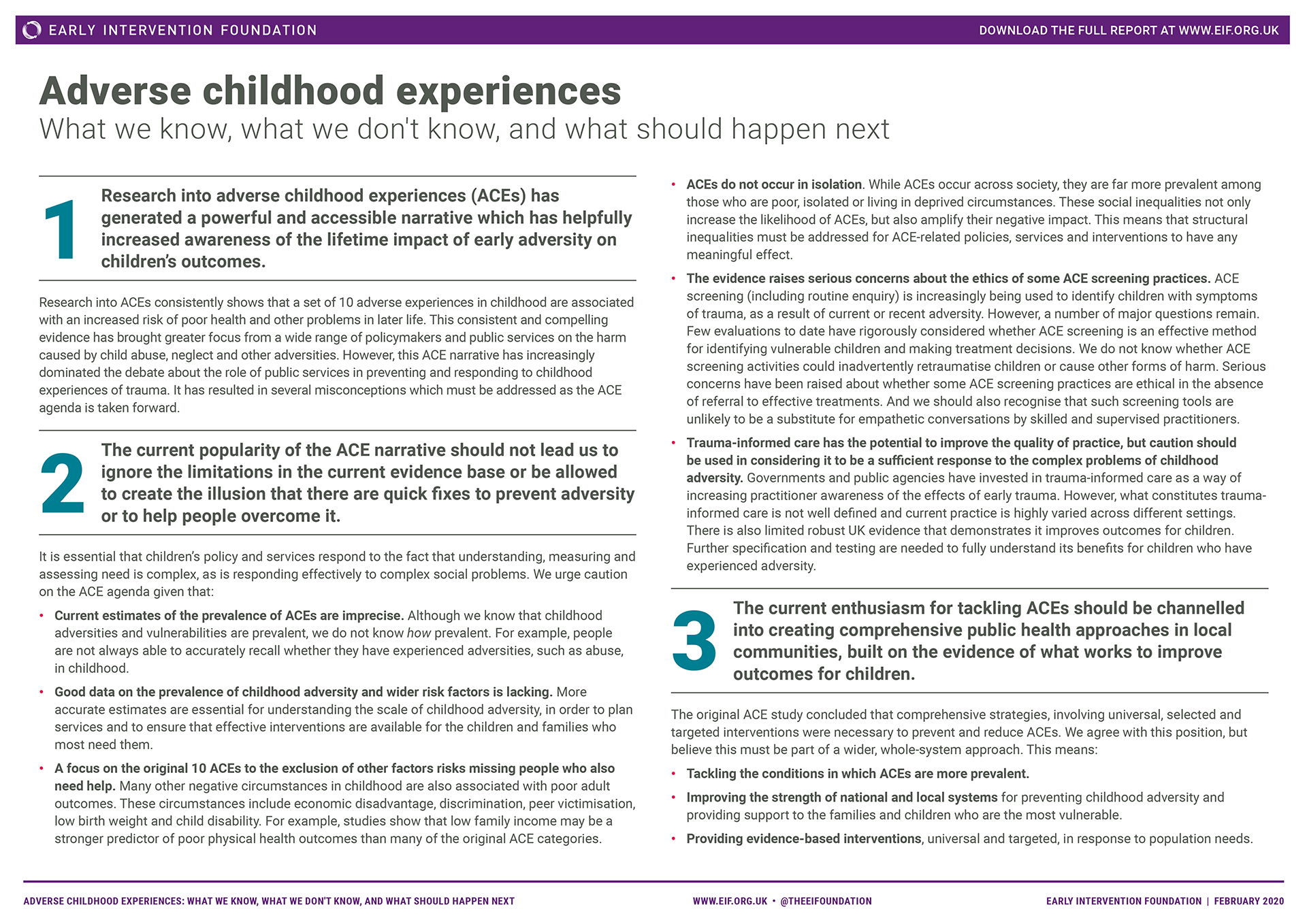EIF report
Adverse childhood experiences: What we know, what we don't know, and what should happen next
This major report surveys the evidence relating to the prevalence, impact and treatment of ACEs, the extent to which ACEs should provide the basis for frontline practice and service design, and the known level of effectiveness and value of ACE-related approaches, such as routine enquiry and trauma-informed care.
Research into adverse childhood experiences (ACEs) consistently shows that a set of 10 adverse experiences in childhood are associated with an increased risk of poor health and other problems in later life. This consistent and compelling evidence has brought greater focus from a wide range of policymakers and public services on the harm caused by child abuse, neglect and other adversities.
However, this ACEs narrative has increasingly dominated the debate about the role of public services in preventing and responding to childhood experiences of trauma. It has resulted in several misconceptions which must be addressed as the ACE agenda is taken forward.
Watch our 1-minute summary of the headline messages on ACEs
This report sets out to examine the ACEs evidence base, in terms of its quality and the conclusions which have followed, and to consider the strength of evidence underpinning common responses to ACEs, including routine ACE screening and trauma-informed care.
Key questions
- What do we know about the 10 original ACE categories in terms of their prevalence and co-occurring risks?
- How robust are the methodologies used to investigate ACEs? Are there other methods which may be more appropriate?
- How strong is the evidence linking ACEs to negative adult outcomes? To what extent has a causal relationship been established?
- What biological and social processes link ACEs to negative adult outcomes? Is knowledge of these processes adequate to inform the design and provision of effective interventions and services?
- What do we know about the effectiveness of common responses to ACEs, including routine ACE screening and trauma-informed care? What is the effectiveness of other kinds of interventions and what is their combined potential for preventing and reducing ACEs?
By addressing these questions, the report provides a follow-up to the 2018 House of Commons science and technology committee inquiry on evidence-based early intervention. The committee’s report reflects a strong consensus that ACEs are harmful and associated with a range of negative adult outcomes, but also noted scepticism about the strength of this relationship and the extent to which current practice responses, including routine ACE screening, are effective or appropriate. The committee advised that progress could only be made if there was clear and robust evidence about the nature of ACEs and their impact on children’s development.

